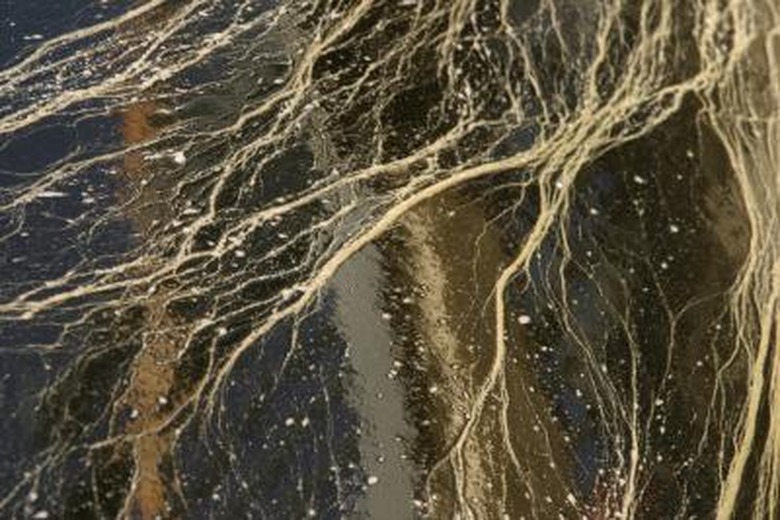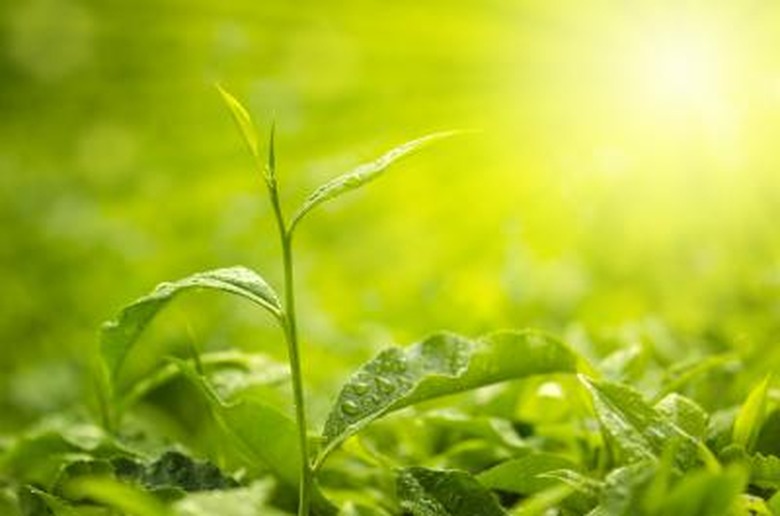What Is The Photosynthesis Equation?
Photosynthesis, derived from the Greek words photo – meaning "light" – and synthesis – "putting together or to make" – is a process used by plants and some bacteria to harness the energy from sunlight to convert water and carbon dioxide to produce sugar (glucose) and oxygen.
The Photosynthesis Equation
The Photosynthesis Equation
The equation for the process of photosynthesis follows:
The equation for the process of photosynthesis follows:
\(6 \text{CO}_2 + 6\text{H}_2\text{O} + (energy) \rightarrow \text{C}_6\text{H}_{12}\text{O}_6 + 6\text{O}_2 \ \text{Carbon dioxide, water, and energy from light produces glucose and oxygen.}\)
This balanced chemical equation (meaning it has equal reactants and products on both sides) depicts the process by which plants and some bacteria produce glucose from carbon dioxide and water using light energy from the sun, as indicated in Jones and Jones' Advanced Biology Textbook (1997). In most plants, water is supplied from the roots, with the leaves collecting carbon dioxide via the stomata and sunlight captured by the chloroplasts in the leaves. For plants, oxygen is just a byproduct of the reaction, but it is vital for humans and animals to survive around the world.
The Light-Dependent and Independent Reactions
The Light-Dependent and Independent Reactions
Photosynthesis consists of two stages, the light-dependent reaction and the light-independent reactions, as explained in Jones and Jones.
The light-dependent reaction uses energy captured from sunlight by the chloroplasts in plant leaves to produce a supply of energy for the light-independent reactions in the form of ATP and NADPH. ATP is produced through an electron transport chain where electrons and hydrogen ions lead to the storage of chemical energy.
The light-independent reaction, also called the Calvin Cycle, uses energy from the supply of ATP and NADPH to reduce molecules of water and carbon dioxide to produce glucose and molecules of oxygen. These processes occur in the stroma. Part of these processes are dark reactions, where carbon fixation (the conversion of carbon to biological molecules) takes place.
Products of Photosynthesis
Products of Photosynthesis
The resulting glucose is converted to adenosine triphosphate (ATP) through cellular respiration, as explained on
the Estrella Mountain Community College photosynthesis web page, to provide energy. In addition to glucose, this reaction produces oxygen that is released by the plants into the atmosphere.
Biology and Chemistry of Photosynthesis
Carbohydrates and Chemical Energy
When looking at the chemical equation for photosynthesis there are key components to note. Photosynthesis produces sugars, or carbohydrates. Carbohydrates are a form of energy in everyday food, and they consist of carbon, hydrogen, and oxygen. We can see this in one of the products of photosynthesis:
\(\text{C}_6\text{H}_{12}\text{O}_6\)
This is a glucose molecule, and it stores a large amount of chemical energy for later use and consumption.
Organelles and Photosynthetic Organisms
The chloroplast in plant cells performs the chemical reactions for photosynthesis taking in molecules of carbon dioxide and water with energy to complete the chemical process.
Chlorophyll is a pigment contained in the chloroplast that gives many plants their vibrant green color. It filters out green frequencies of light (reflecting them instead) to absorb energy efficiently.
Plants and other organisms that perform photosynthesis are known as autotrophs, as they produce their own energy and a surplus.
Impacts of Photosynthesis
Impacts of Photosynthesis
The conversion of solar energy into another form (like sugar molecules or chemical energy) is an invaluable process for the ecosystem of the planet. Plants and other living things create a system that recycles carbon and oxygen with the use of an endlessly available energy from the sun. Plants create their own food through photosynthesis, and they also create a surplus of energy for a variety of other organisms to survive on.
References
- The Estrella Mountain Community College Website online Photosynthesis web page
- "Advanced Biology;" M. Jones and G. Jones; 1997
- Photosynthesis – National Geographic
Cite This Article
MLA
Newton, John. "What Is The Photosynthesis Equation?" sciencing.com, https://www.sciencing.com/photosynthesis-equation-6962557/. 4 March 2023.
APA
Newton, John. (2023, March 4). What Is The Photosynthesis Equation?. sciencing.com. Retrieved from https://www.sciencing.com/photosynthesis-equation-6962557/
Chicago
Newton, John. What Is The Photosynthesis Equation? last modified March 4, 2023. https://www.sciencing.com/photosynthesis-equation-6962557/



